CATTI-题库-真题-模拟-课程-直播
 UN
UN
 2021-02-22
2021-02-22

 489次
489次
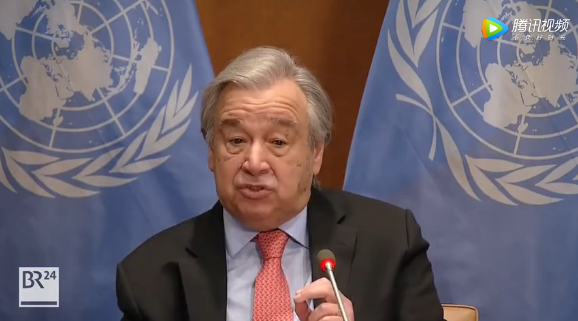
Remarks by António Guterres at Munich Security Conference Segment on “Priorities for Global Action”
19 February 2021
Well, thank you very much. It’s a great pleasure to be back in Munich, even if virtually.
And dear friends,
Our global tests and challenges are getting bigger and more complex.
Yet our responses remain fragmented and insufficient.
COVID-19 has x-rayed the world, exposing deep fissures and fragilities.
Those vulnerabilities go well beyond pandemics and public health.
Climate catastrophe is looming.
Inequality and discrimination are ripping the social fabric.
Corruption is destroying trust.
The struggle for women’s rights faces a pushback.
The Sustainable Development Goals are off-track.
Wild West behaviour in cyberspace has created new vectors of instability.
And even the nuclear disarmament regime is eroding – despite the welcome recent decision of the United States and the Russian Federation to extend the New START treaty.
Now, 2021 must be the year to get back on track.
And pandemic recovery is our chance.
Four imperatives, in my opinion, stand out.
First, a Global Vaccination Plan.
Vaccines must be available and affordable for everyone, everywhere.
Vaccine equity is crucial for saving lives and for saving economies.
Countries need to share excess doses and provide the billions needed for the COVAX initiative to be in full swing.
And we also need at least a doubling of global manufacturing capacity, through sharing of licenses and technology transfer.
I believe the G20 is well placed to establish an Emergency Task Force to prepare such a Global Vaccination Plan, bringing together the countries, the companies and the international organizations and the financial institutions that have the required power, scientific expertise and production and financial capacities.
And I’m ready to galvanize the full United Nations System in support of this effort, starting by the World Health Organization.
Our second priority must be to reach net zero greenhouse gas emissions by mid-century.
And there is reason for hope.
Now countries representing more than 65 per cent of emissions and more than 70 per cent of the world economy have committed to net zero greenhouse emissions by 2050.
Let’s expand this coalition to 90 per cent by the November Climate Conference in Glasgow.
All countries, cities, corporations and financial institutions should set benchmarks to implement the net-zero transition in the next 30 years.
And this should start now with concrete steps:
To put a price on carbon.
To end subsidies and financing for coal and other fossil fuels, and to reinvest those funds in renewable energy and in just transition.
Third, we need to ease geopolitical tensions and enhance the diplomacy for peace.
We cannot solve the biggest problems when the biggest powers are at odds.
Our world cannot afford a future where the two largest economies split the globe into two opposing areas in a Great Fracture – each with its own dominant currency and trade and financial rules, its own Internet and its artificial intelligence capacity and strategy.
A technological and economic divide risks turning into a geo-strategic and military divide.
And we must avoid this at all costs.
I also want to repeat my call for a global ceasefire.
We have seen some encouraging signs in a few stubborn peace processes.
But elsewhere, fighting continues.
And everyone is losing.
And we also need a ceasefire beyond traditional battlefields:
In homes, workplaces, schools and public transportation, where women and girls face an epidemic of violence.
And in cyberspace, where attacks of all kinds are happening every day. Digital technologies must be a force for good – and that requires also a total ban on lethal autonomous weapons, the most dangerous dimension that artificial intelligence can bring to the future of war.
Fourth, it’s time to re-define global governance for the 21st century.
The collective security arrangements agreed more than 75 years ago have prevented a third world war.
Our common principles must endure for the 21st century.
And that means ensuring new ways to deliver global public goods, to build a fair globalization and solve common challenges.
We do not need new bureaucracies.
But we need to strengthen multilateralism so that the world has:
A networked multilateralism that links global and regional organizations, economic and political entities, and an inclusive multilateralism that engages businesses, cities, universities and movements for gender equality, climate action and racial justice.
And a multilateralism that respects the rights of future generations.
Many believe that growing multipolarity in the world will guarantee by itself peace.
But let us heed history. More than a century ago, Europe was multipolar – but there were no multilateral governance mechanisms. And the result was the First World War.
Now is the time for solidarity and international cooperation to tackle our even bigger and more complex challenges.
And I’m convinced that if we are determined, we can achieve our shared goals. And I thank you.

 点赞(0)
点赞(0)

 收藏
收藏
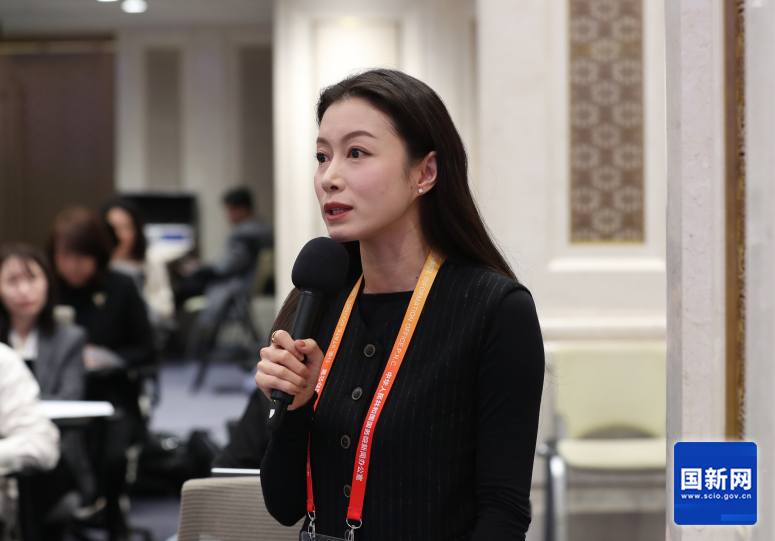
2025年第九届亚洲冬季运动会将在黑龙江省哈尔滨市举办。在亚冬会倒计时100天前夕,我们非常高兴邀请到亚冬会组委会副主席、中国奥委会副主席周进强先生,亚冬会组委会副主席、黑龙江省人民政府副省长韩圣健先生,亚冬会组委会副主席兼秘书长、哈尔滨市人民政府市长王合生先生,亚冬会组委会副秘书长、哈尔滨市人民政府副市长张海华女士,请他们为大家介绍哈尔滨亚冬会筹办情况。
国新办&CGTN 2025-01-06 14:49:40
 收藏资讯
收藏资讯
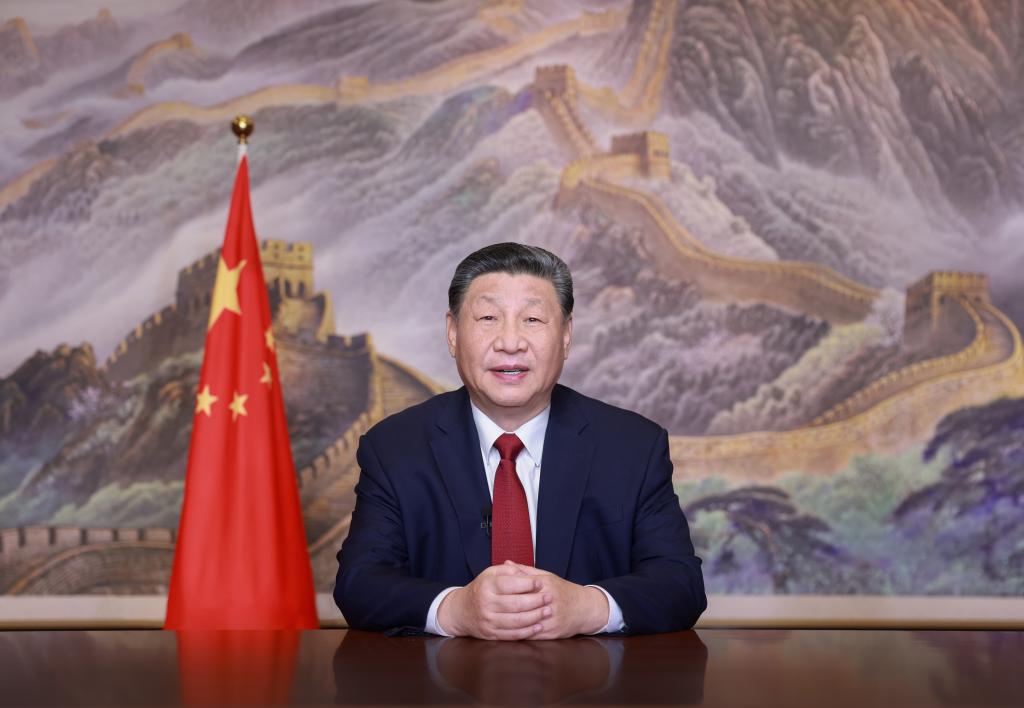
Greetings to everybody! Time flies fast, and the new year will be with us shortly. I extend my best wishes to you all from Beijing.
CGTN 2024-12-31 21:46:41
 收藏资讯
收藏资讯
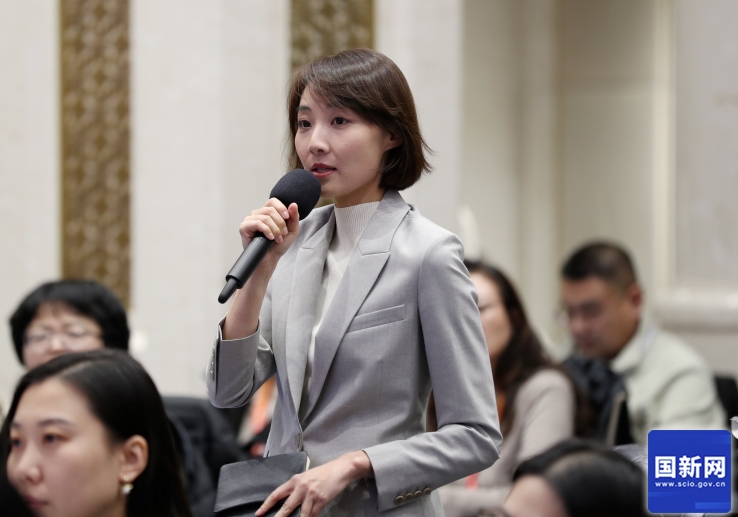
国务院新闻办公室于2024年12月26日(星期四)下午3时举行新闻发布会,请国务院第五次全国经济普查领导小组副组长、国家统计局局长康义,国务院第五次全国经济普查领导小组办公室主任、国家统计局副局长蔺涛,国家统计局普查中心主任何平,国家统计局国民经济综合统计司负责人王冠华介绍第五次全国经济普查结果有关情况,并答记者问。
国新办 2024-12-31 09:06:35
 收藏资讯
收藏资讯
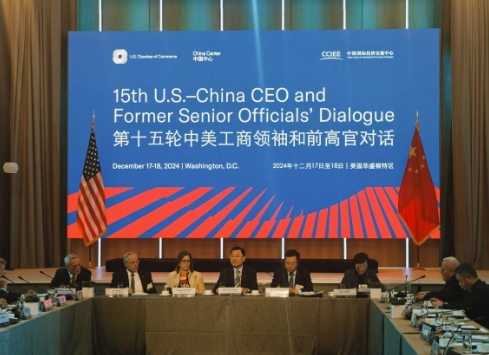
大家下午好!很高兴参加第十五轮中美工商领袖和前高官对话。在中美建交45周年、美国大选落下帷幕之际,举办此次对话恰逢其时。在座各位朋友都是中美关系的积极参与者、贡献者,也是重要利益攸关方。感谢你们长期以来为中美关系发展所做积极贡献。
驻美使馆 2024-12-30 17:17:47
 收藏资讯
收藏资讯